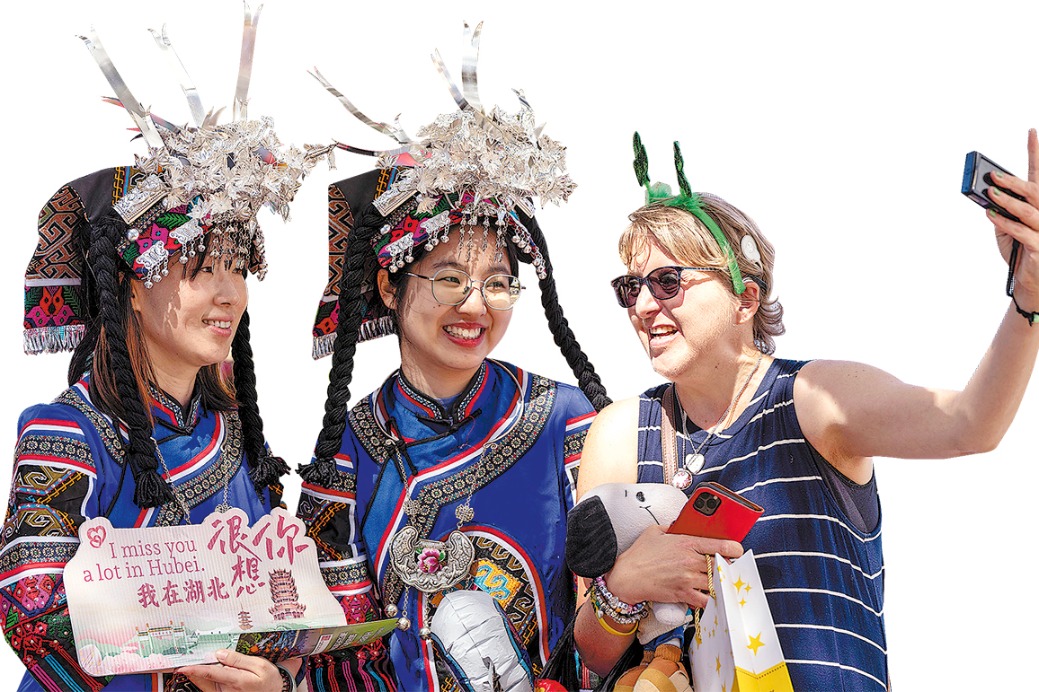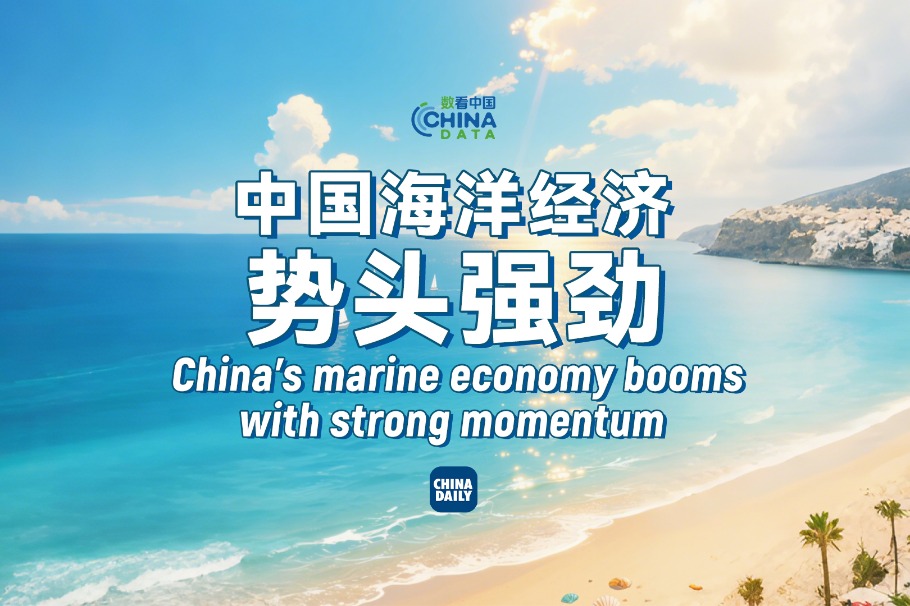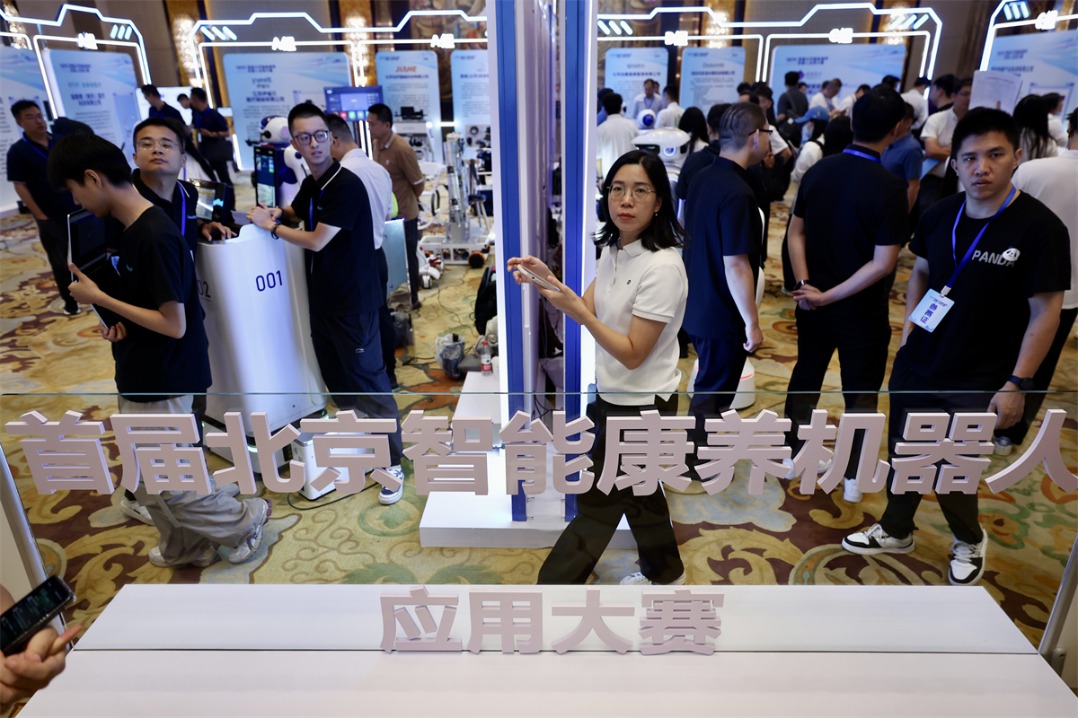A better understanding
Chinese economist's approach to the subject is based on 'being practical', Yang Feiyue reports.

Lu Yi did his undergraduate studies in biology, which was a "detour" for him, but he made up for it in the following years by embarking on a successful career in a different field.
Lu, now in his early 40s, has managed to publish three or four academic papers annually on economics in top journals since he started teaching at Tsinghua University in Beijing in 2017. His academic contribution made him dean of the economics department at the School of Economics and Management in 2019. His work focuses on the Chinese economy, public finance, international trade and economic growth, and has shed light on economic issues and policy effects in China and overseas.
Lu has won many prizes, including the 2019 China Young Economists Award jointly given by the Economic Research Journal of Peking University's Guanghua School of Management and Wuhan University's advanced studies institute. Perhaps it was the number of papers he had published, "enough for a lecturer to work his way up to be a professor", Lu says jokingly about his awards during an interview in his office, where he has a casual look in thin metal-rimmed glasses, a white polo shirt and gray sports shoes. He interprets economics in plain words for his audience.
Many of his studies have offered reference material and inspiration for policymaking. For example, his study of vehicle purchase tax revealed that tail gas emissions increased over a period of four months as tax for low-emission cars was cut, which prompted many people to buy such cars.
"I hope I can help optimize policymaking before events and evaluate it later," he says.
His approach to the subject is in line with the philosophy of being practical that he has upheld over the years. It was Lu's ambition of putting economic theories into practice that pushed him to return to China from Singapore, where he had worked as an associate professor with tenure at the Department of Economics, National University of Singapore.
"My major focus has been the Chinese economy, but related studies abroad were mainly conducted through data analysis, not thorough enough," Lu says. "I wanted to get in the field, communicate with related government organs and better understand it."
Lu has begun to help the People's Bank of China analyze quarterly economic situations and work with regional financial departments on medical services.
"It is good to have a long-term cooperation mechanism with them, since we have different edges and can complement each other for better results," Lu says.
When he has time, Lu conducts field research across the country to get a better sense of what is happening on the ground. He also pays attention to rural development. Although it is impossible for him to stay in villages for a long time, he says, he has been able to offer solutions by working with others.
He studied biology at Fudan University in 1999. "It was under my family's advice, for better prospects of a promising job," he says.
However, by the time he graduated, Lu found himself with no interest in the science and decided to shift his focus of discipline. After a year of preparation, he got a slot at the postgraduate management program of Fudan University in 2003. In addition to studies, Lu picked up some skills. "I felt like I needed to make up for the lost time."
The efforts got him a scholarship for a PhD program in economics at the University of Hong Kong in 2007, and he went for it. That was when he discovered he wanted to carry on with economics.
"I just love the discipline, which can help boost economic growth on a grand scale and reduce poverty on the small side," he says, adding that he often worked 14 hours a day and sometimes suffered from cerebral anoxia.
"The symptom was I didn't know how I got home from school," he recalls.
But he says he didn't feel tired at all, because he was doing something he loved. Born in downtown Shanghai, Lu says he felt an innate bond toward the motherland during his time in Singapore. The urge to serve China grew when he heard about unwarranted stereotypes and prejudices toward Chinese people. Somehow, it reminded him of the stories he had heard growing up of the revolutionary martyrs who made sacrifices for the country's development. Memories of his postgraduate classmate Zhang Yichao from Fudan University also prompted him to return to China.
"I have great respect for his ambition and selfless efforts, such as arranging volunteers and raising funds, in making better education possible for children of migrant workers in Shanghai," Lu says, adding that he was impressed with how Zhang continued his cause after graduation by helping to establish long-term education programs for such underprivileged children.
The factors all played a part in motivating him to make the decision of coming back.
"I realized that one's life shouldn't just be about fighting for success and fame, but making some contribution to the country and people," he says. "Even if you're abroad, you feel it's your country having your back. Without its prosperity, there's no chance of your happy life."
Lu submitted his application to the Party branch at Tsinghua University in March 2019 and officially became a Party member earlier this month. During the process, he learned more about Party guidelines and policies, which he says has helped him to settle on new directions in academic studies. He has also realized the responsibility of his post, offering guidance to his students.
Huang Naixin, a student of Tsinghua University, has been impressed by Lu's deconstruction of abstract and complex economic issues.
"He has also inspired us to see principles behind economic models and draw inferences about other cases from one instance," says Huang who is in her third year of PhD and currently studying an interdisciplinary course on international cooperation in climate change and international economy with Lu.
"He helps us quantify the impact of the international community's climate fund for carbon emission on developing countries," she says.
Lu's readiness to help his students and easygoing manner have also endeared him to his students.
"We can also make jokes around him during our interactions," Huang says.
Lu says the global carbon trade market, carbon pricing and taxes will all exert influence on China, so he would like to do his part for the country's preparations for participating in global carbon exchanges in the future. He is confident about China realizing its goals of stabilizing carbon emissions by 2030 and reaching carbon neutrality by 2060. "We will surely give fully play to new energy development and traditional energy desulfurization."
Speaking about his future goals, Lu says he hopes to better see the big picture of China's economy and do something for it. "Hopefully, I can piece more nuts and bolts together and bring in positive changes."
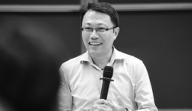


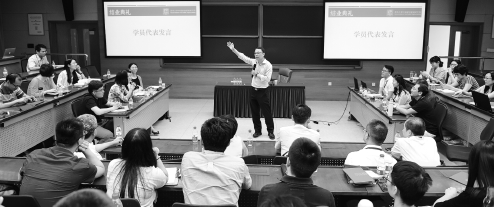
Today's Top News
- Xi's book on governance hailed for insights into 'China miracle'
- European destinations swamped by tourists
- Economy expected to maintain steady pace
- Stable, healthy Sino-US ties benefit all
- CPC plenum to focus on next five-year plan
- Talks highlight the fact that cooperation benefits both sides, confrontation harms both
















